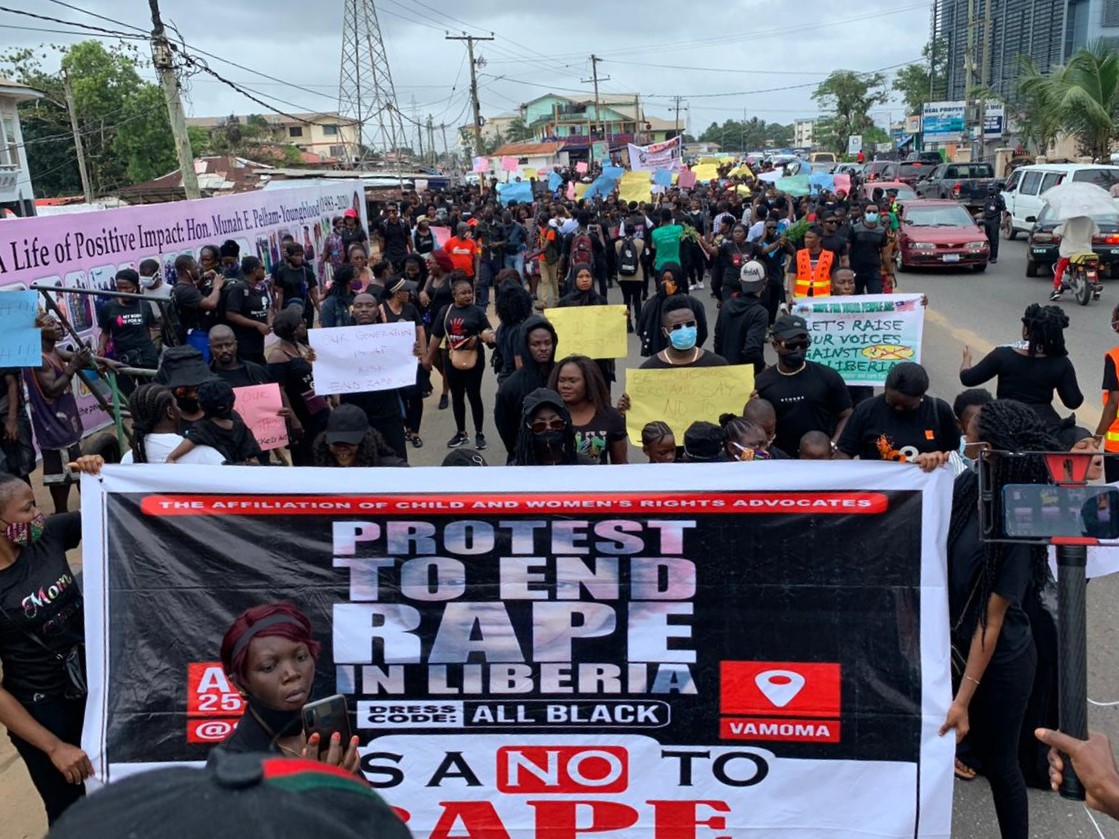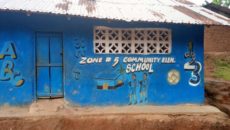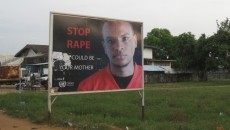MONROVIA, Montserrado – Approximately 900 Liberians gathered on Tuesday to demand that their leaders take effective measures to end the epidemic of rape in the country.
The protesters comprised of women and feminist organizations, human rights activists, and youth organizations collaborating under the umbrella of the Affiliation of Women and Child Rights Advocates. They called for the government to declare the apparent increase in rapes a national emergency.
The campaign arose due to the increasing number of reported rape cases in the country since COVID-19 led the government to institute states of emergency beginning in April this year.
According to statistics from the Ministry of Justices statistics, there were 602 cases of rape recorded from January to June of this year, with most of the victims being minors from 17 years of age to three-months-old.
About two weeks ago, several news outlets reported that a three-year-old toddler was raped by a 15-year-old boy in Gbarpolu. The perpetrator had used a razor blade to cut the vagina of the baby before forcing his way in.
On August 22, a 30-year-old woman also reported being drugged and gang-raped by five men in the township of Johnsonville in Montserrado.
The protesters intended to present their petition to the president and lawmakers. Beginning from Vamoma at the edge of Sinkor to the Ministry of Foreign Affairs, where the president’s office is located, the group marched along Tubman Boulevard.
Protesters asked to present their demands and recommendations to President George Weah, but only the minister of gender, Williametta E. Saydee-Tarr, along with few of her officials, were present. The protesters decided against presenting their demands and insisted that only the president would receive the petition.
Many were disappointed by Weah’s decision to not be present to receive the petition, given that he has called himself ‘feminist-in-chief’ and has sought to portray himself as serious about key issues affecting women, if only on the surface level.
Speaking with The Bush Chicken during the protest, Nesuah Livingstone, who represents a group that advocates for children, expressed her dissatisfaction over the president’s refusal to receive their petition.
“If the president can grace invitations for football games and even participate in it, then why is he not honoring our request to receive our demands?” she said. “He jumps on the field to play, then why can he come to talk to us about rape? So is it not a priority?”
She asked that the president declare rape as a national emergency to catch the entire nation’s attention.
“When they want positions, they will sit on the mat with us and now we have come to them, they don’t want to sit with us and they will have to,” she said.

Days before the protest, the Executive Mansion circulated this photo of the president, referring to him as ‘feminist-in-chief.’
At the Capitol Building, members of the legislature were present to receive the petition, including Rep. Marvin Cole of Bong’s third district, Rep. Julie F. Wiah of Lofa’s second district, Rep. Mike Jurry of Maryland’s first district, and Rep. Thomas Goshua of Grand Bassa’s fifth district.
A 14-year- old, Irine N. Smith, read the petition to the lawmakers, which made recommendations for increasing budgetary allocations to Criminal Court E, the specialized court set up to deal with sexual and gender-based violence cases. The petition also called for the strengthening of the judicial system for the fast trial of rape and other sexual and gender-based violence and hiring more judges to deal with such cases.
Protesters also requested that all counties have functional safe homes to accommodate survivors of rapes and ensuring that counties that do not have branches of Criminal Court E have them established.
The petition also called for an increase in the capacity of the Women and Children Protection Division of the Liberia National Police, which primarily deals with cases of rapes. The protesters wanted the unit to be equipped with funding, training, logistics, and other resource needed to carry out their duty properly.
They also asked that lawmakers hold town hall meetings in their various districts to raise awareness about rapes and to ensure legislative oversight over relevant government institutions to make sure they were doing enough to reduce and prosecute cases of rapes, including the Gender Ministry, the Ministry of Health, the Liberia National Police, and Criminal Court E.
The group gave lawmakers two weeks to have a public hearing on rapes, which should include key stakeholders working on the issue.
In response to the petition, Rep. Julie F. Wiah said she stands with the protesters. She promised that the petition would be taken to the rest of the lawmakers to discuss and arrange a public hearing.
“Enough is enough, Liberia,” Wiah said. “Our future is being destroyed. Let us stop [rapes] and we are going to work on that.”
Success Mabruh joined the protest because he said rapes have become more and more alarming and young people need to stand together against it to make sure that their voices are heard.
He said this protest is going to be different because it is not a political protest. Rape cases are even higher than active COVID-19 cases, he said, pointing out that, as of August 25, there were 392 active confirmed cases while there are over 600 cases of rape.
Many celebrities were also present at the protest, including musician Maurice Terziq Gayflor, popularly known as CIC. Gayflor said he came to add his voice to the many voices demanding actions from the government. He joined one of the many calls for tougher punishment of convicted rapists, including castration.
“Jail is not working anymore, so we need to start cutting nut bag dem,” he said in Liberian vernacular. “You violate another right, we violate another right. I think it’s the right thing to do. We have been going through this from 1847 up to now and it has been the same jail thing.”
Featured photo by Mafanta K. Jabateh



